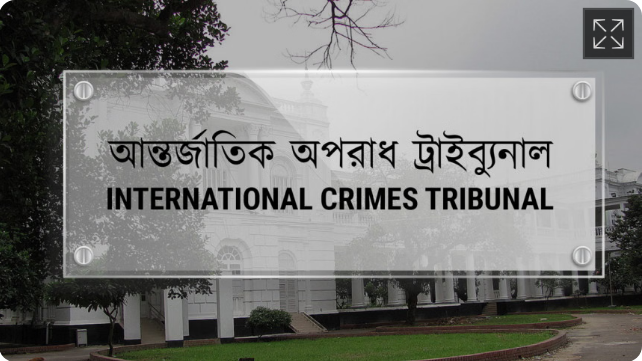Last update on: Mon Oct 13, 2025 04:51 AM
Aided by the administration and the judiciary, the Awami League established a “monstrous regime” during its 15-year rule, Chief Prosecutor Tajul Islam told the International Crimes Tribunal-1 during the closing argument of a case filed against deposed prime minister Sheikh Hasina.
This is the first closing argument in any case filed with the ICT relating to crimes against humanity, enforced disappearances, and extrajudicial killings committed during the 15 years. Hasina and her two top aides are accused in this case.
Tajul began by outlining the historical and political background, arguing that the AL’s practices had roots in its early post-independence rule. He cited the formation of the Rakkhi Bahini in 1972, the killing of leftist leader Siraj Sikder, creation of BAKSAL, and what he termed “farcical elections” in 2014, 2018, and 2024.
He alleged that the 2009 BDR mutiny was a “deliberate attempt to cripple the military’s backbone” and claimed that the then government did not bring the perpetrators to justice.
Comparing the AL’s post-independence years to its 2009-2024 rule, he said both periods were marked by unlawful detentions, torture, and election rigging.
“The culture of extrajudicial killings began with Siraj Sikder’s murder,” Tajul continued.
At one stage, tribunal member Justice Md Shofiul Alam Mahmood reminded the prosecution, “We are trying individuals.”
Tajul then said explaining the political context was essential to understanding the motives of the accused.
Speaking to journalists during a recess, Tajul said, “Our argument began by describing how the Awami League government turned into an authoritarian regime where misrule and oppression became institutionalised.”
He said the background was crucial to understanding how the three accused became perpetrators of crimes against humanity.
The other two accused in the case are former home minister Asaduzzaman Khan Kamal and ex-inspector general of police Chowdhury Abdullah Al-Mamun.
Tajul argued that the July 2024 uprising was the outcome of years of repression and fear under what he called a “tyrannical rule”. He claimed that the military-backed caretaker regime of 1/11 paved the way for AL’s return to power through a “stage-managed election” in 2009.
He said the regime later turned Bangladesh into “a land of enforced disappearances and killings”. Crimes were carried out systematically by law enforcement and intelligence agencies. He alleged that the government amended the Code of Criminal Procedure so that ruling party members are not prosecuted.
Tajul further accused Hasina’s government of destroying the election system by abolishing the caretaker government system. “The judiciary was exploited as a tool to establish fascism.”
At that point, tribunal Chairman Justice Md Golam Mortuza Mozumder remarked that he had once proposed to a Judicial Reform Commission, a mechanism to ensure judicial accountability, but it was ignored.
“Judges cannot be allowed to act as they please. There is no system to hold anyone in the Supreme Judicial Council accountable if they commit an offence,” he added.
The chief prosecutor detailed alleged patterns of state atrocities, including secret detentions, torture, and extrajudicial killings disguised as “crossfire.”
He described the use of a so-called “Aynaghor”, where detainees were reportedly tortured, given shocks to their genitals, and lethal injections.
Victims’ bodies, he said, were often dumped on railway lines to make it appear as accidents or thrown into rivers, after the bodies were disembowelled and tied to cement bags.
According to Tajul, such actions were carried out under “direct orders from the then prime minister and her associates”. He said the commission on enforced disappearances received 1,800 complaints, though the actual number of victims was around 6,000, with about 1,000 still missing.
As a result of the continuation of such atrocities, the previous government used its full force against the unarmed young people and killed over 1,500 people and injured over 30,000 others.
Tajul said the regime used lethal weapons, drones, and armoured personnel carriers to crush protesters. If the government had not fallen on August 5, it would have killed many more to cling to power, he said, adding that orders were issued to shut down TV stations.
The prosecution will resume its arguments today.
Source: https://www.thedailystar.net/news/bangladesh/news/awami-league-ran-monstrous-regime-4008461

